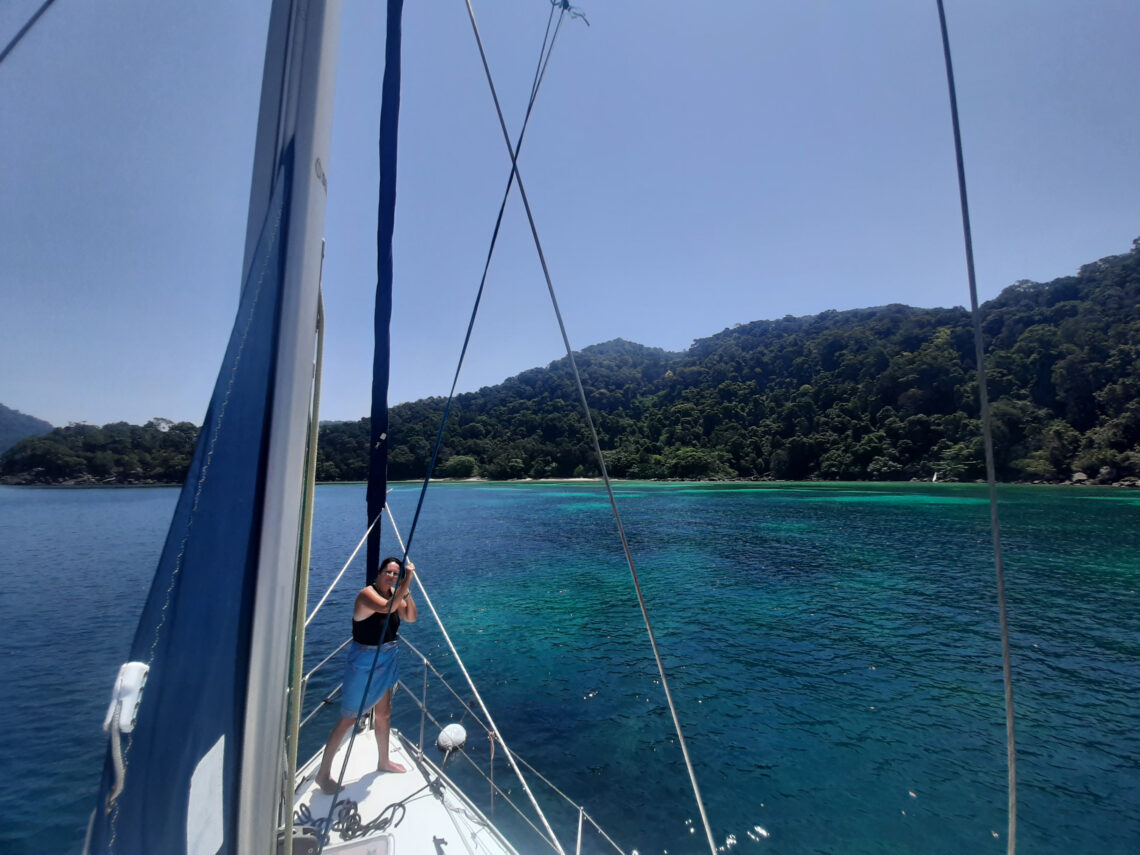
Paradise Found!
We found paradise!
We’re often asked what our favourite spot in Thailand is, and I generally resist responding, since “nicest snorkelling”, “chill vibe”, or “easy provisioning” may not all overlap in the same location. If pushed, I sometimes add “thus far..!”, as in “my favourite place… thus far”, just in case we find an even better spot the following week! But Koh Surin was so special it deserves its own blog entry!
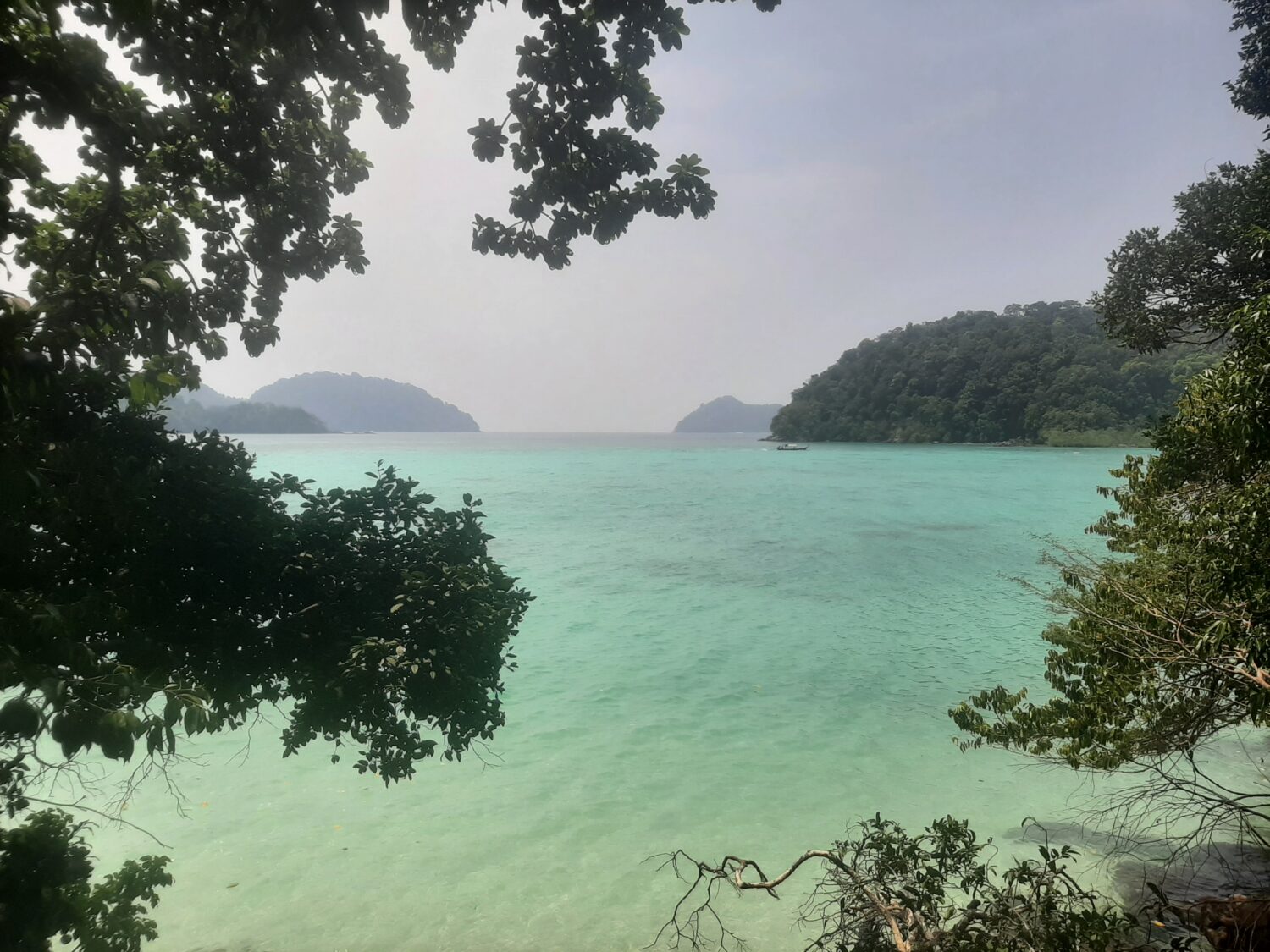
Koh Surin is a collection of national park islands about forty miles off the Thai mainland. It’s just north of the much better known (and more touristed) Similan Islands. At our sedate pace, it takes us about eight hours to cover those forty miles, so it feels like a bit of a journey to get there.


The national park authorities have done an excellent job of keeping things ashore simple. There are two areas with a few holiday bungalows, tent campsites and a simple canteen-style restaurant. They run a generator for power for a few hours each evening and the canteen has a table set up for land-based tourists to charge their phones and other devices. We’re not used to having better facilities on board Aroha than on shore, so it was kind of fun to think that life aboard Aroha was, for a change, slightly more luxurious than that ashore!
There are also recycling facilities – quite a rarity in Thailand, where for the most part all rubbish is simply mixed in together.
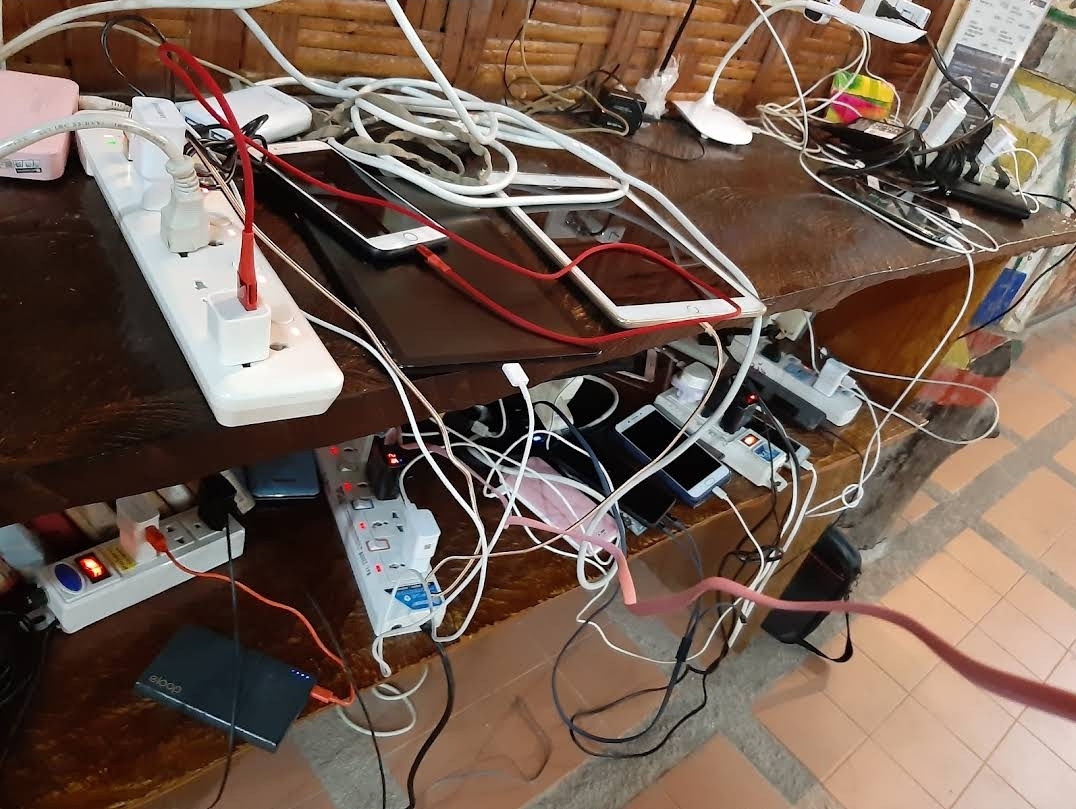
Thanks to great water clarity and many colourful fish, I declared this the best snorkelling spot. “Thus far”, of course. The corals, mainly hard, appear in good health, but unfortunately, the scarcity of larger fish and sharks indicates that like much of SE Asia, the sea life isn’t in good overall health. Like the web meme, people will stop using straws to save the fish, but won’t stop eating fish to… you know, save the fish!
Helen and I snorkelled over the reef one afternoon and up to a nearby beach. The coarse sand was off-white and pretty tropical trees grew right on the water line, shading the shallow water. It was tranquil.
What took our breath away though was the amount of plastic rubbish that had washed up on the island. There’s only one thing that amazes me more than the generation who thought it was a good idea to use plastic so prolifically for single use and that is the subsequent generations who continue to do so with such energetic abandon. Google tells me that it takes between 20 and 500 years for plastic to decompose, so until then, tons and tons of the stuff floats around until a high tide takes it far enough up a beach to stay there. And spots of paradise like Koh Surin aren’t immune.
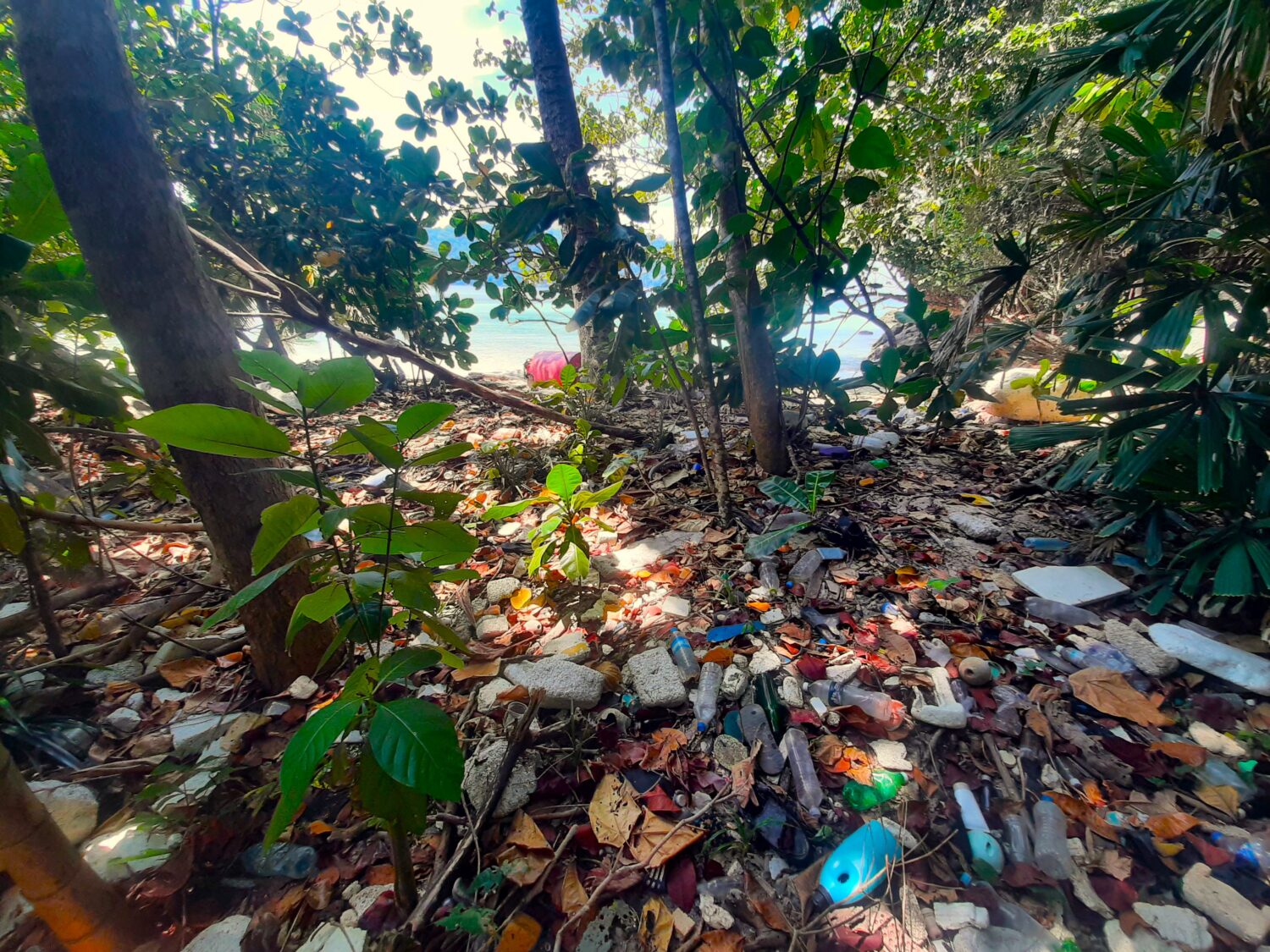
We decided to do something about it – cleaning up two beaches – one near where we were moored, which wasn’t too bad, then returned to the original plastic beach. Barely needing to move from one spot, we quickly filled four rubbish bags. When I brought a dinghy full of plastic ashore to the recycling bins, I met a friendly Thai guy – himself on holiday from his home up north. I was quietly pleased that my good actions had been noticed but also excited that my actions had inspired someone else’s thought process. We agreed to meet the following morning (with some of his friends) to return to “plastic-beach” to finish the job!
It’s easy to think we’re too small to make a difference. The excuse that’s often quoted in Aotearoa New Zealand for not taking climate change action is that our country represents just 0.15% of global emissions, so, you know, why bother trying?! But we are in the top 10% of emitters per capita, and more importantly, we can all lead by example.

So, dear reader, I think you’re expecting this next paragraph to say what an amazing, community and cultural-unifying experience the following day’s beach clean-up was? Not so! Since I’d used all our rubbish bags, my Thai friend approached the national park office to ask for some more. What I hadn’t factored in was that, as a National Park, access to beaches on Koh Surin is limited to a few designated areas. Some are strictly off-limits to tourists as part of the National Park’s remit to protect the habitat of birds, wildlife, and the land itself. Unfortunately, and even though our intentions were good, the area we had wanted to clean was within the no-go zone so the authorities were not able to grant us access. We plan to return next year, so will try again to see if we can get permission to continue with the removal of the plastic that remains and more that will no doubt arrive by sea in the meantime.
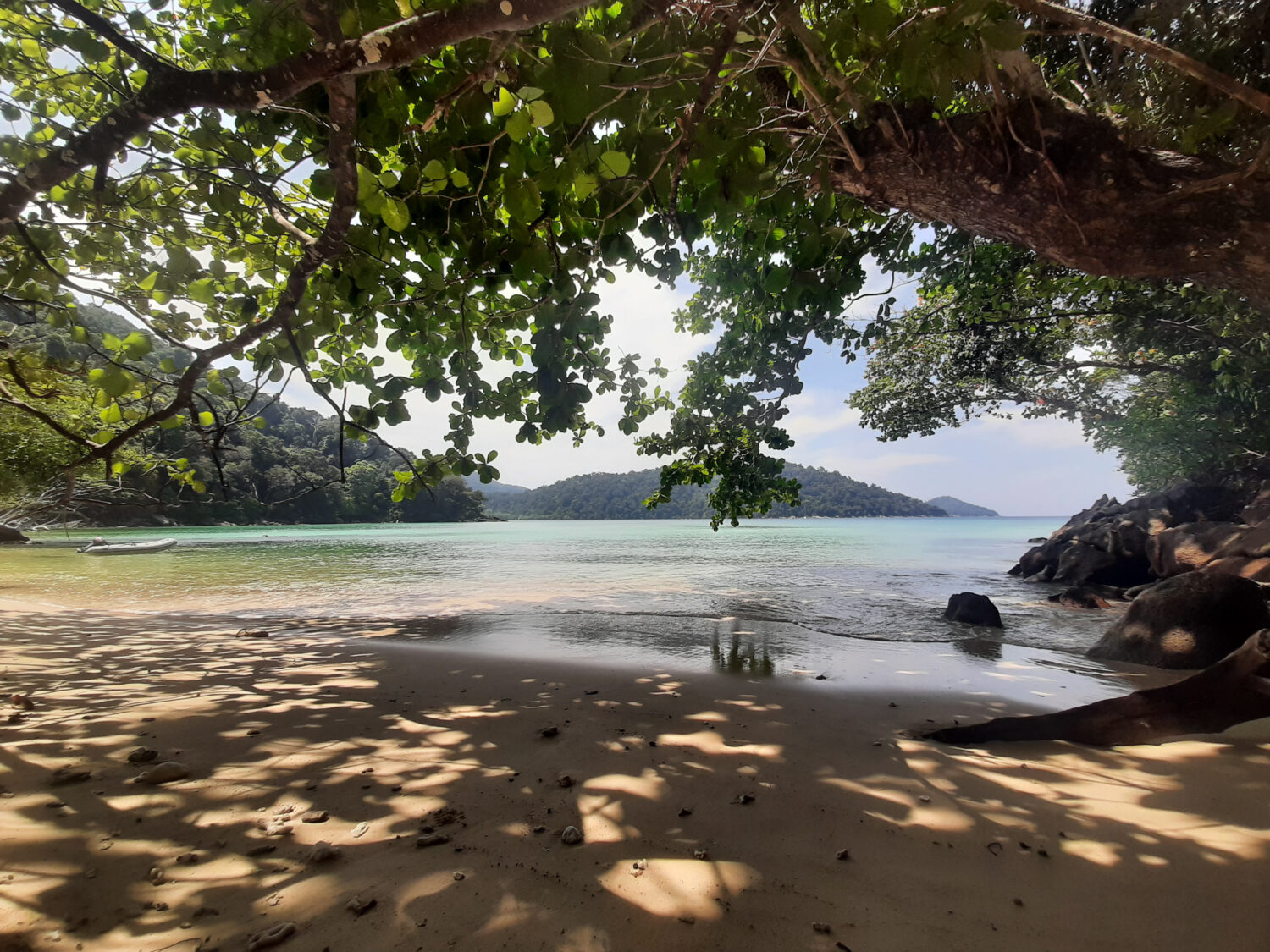

One afternoon we took a longtail boat to the next island to visit a Moken village. These are nomadic people who traditionally roamed around the islands between Myanmar (Burma) and Thailand, and a few hundred have settled here. It did feel a bit voyeuristic visiting their village, but it was eye-opening seeing a very simple way of life as well as supporting them by buying some handicrafts and using their longtail ‘taxis’. The Moken Village has had a somewhat challenging history over recent years. It was badly affected by the 2004 Tsunami with the majority of huts (hand built largely of wood and palm leaves) being destroyed. The villagers, thankfully, had read the sea state and made it to higher land. They rebuilt slightly further onshore and all was good until 2019 when a fire, started accidentally, resulted in a significant number of homes being burnt to the ground.
The simple village extends two houses deep along the edge of the beach, with a walking track between the homes. Despite our sense that we were intruding, the villagers were extremely welcoming and most had handmade jewellery and souvenirs for sale on makeshift tables outside their homes, whilst all around were scenes of everyday life as children played, clothes were washed and food was prepared.



Our visit to Koh Surin happened to coincide with the First Mate’s birthday. Being, what felt like, a long way from civilisation, she was lucky to get a birthday ‘cake’ fashioned from Oreo cookies, and a visit from our yacht neighbours and their energetic three-year-old who had made her birthday gift for Helen out of pipe cleaners, and Helen became the proud owner of a pipe cleaner Nemo and Squid!

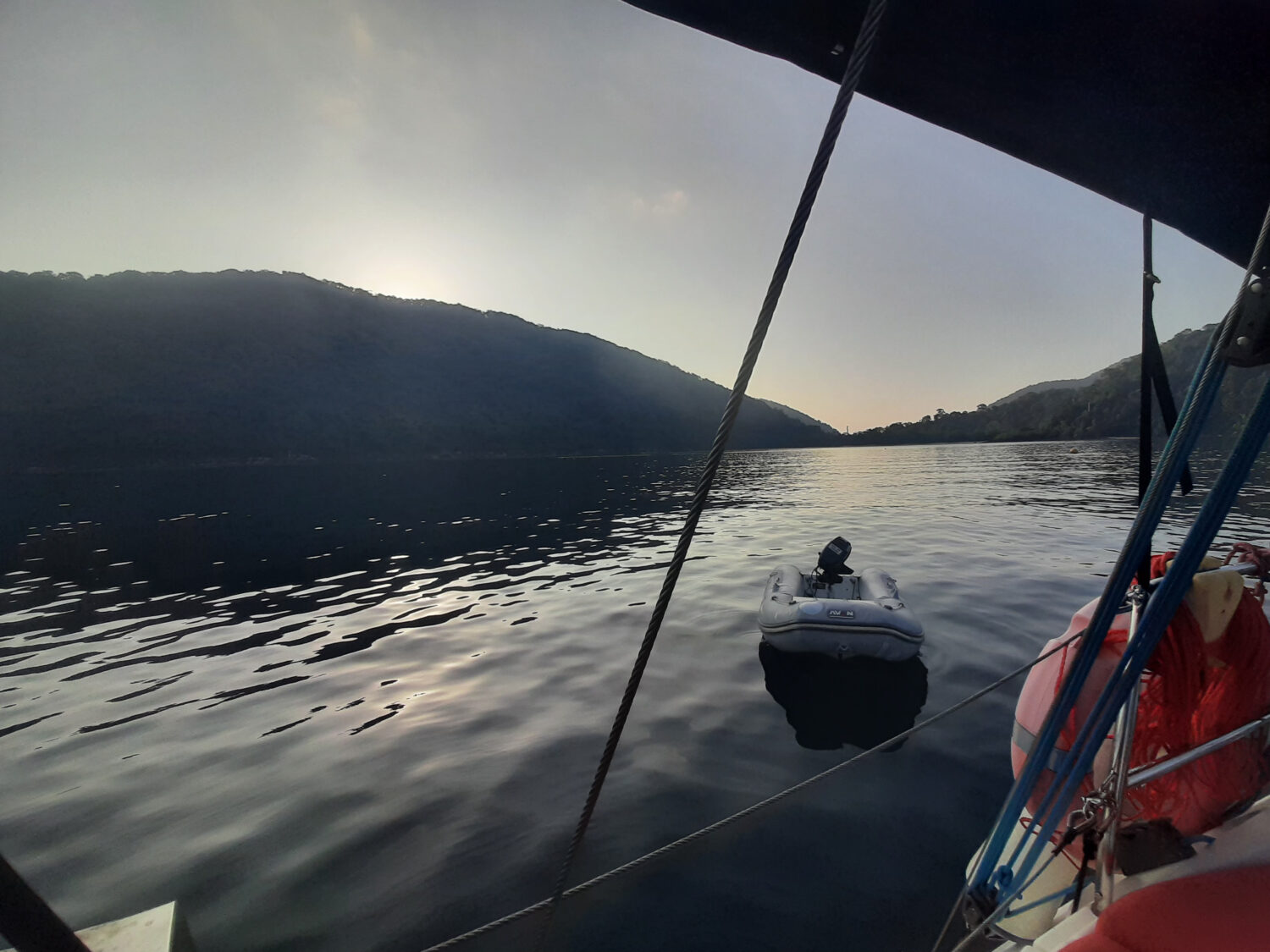
We moved anchorage every two or three days – sometimes we could anchor close enough to a beautiful reef to snorkel straight off the back of Aroha. Sometimes we preferred the spot a short dinghy ride from the canteen – they do a great vegetarian fried rice, which is just as well as it was pretty much the only vegetarian item on the menu! Too fast, our two weeks passed and it was time to head back to the mainland.
We had a plane to catch, for our next visa run.

Follow and like us to be notified of future blogs!



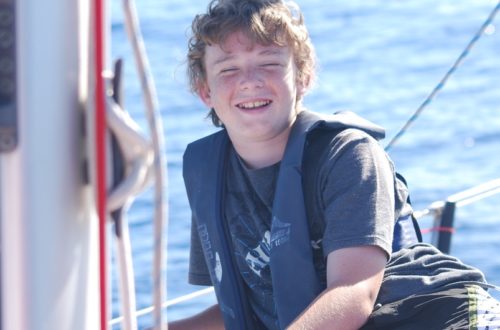

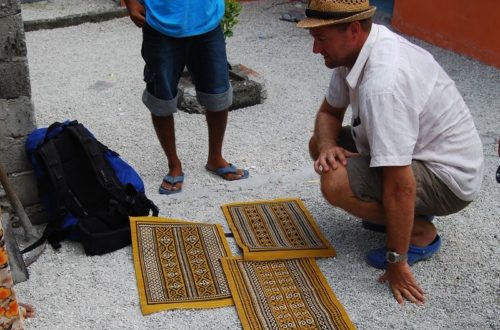
One Comment
Mavis Glover
So frustrating that you couldn’t finish off the litter picking job but I reckon you have planted the seed in the other visitors minds and now that will have a ripple effect wherever they travel.
Keep up your influencer role.
XX